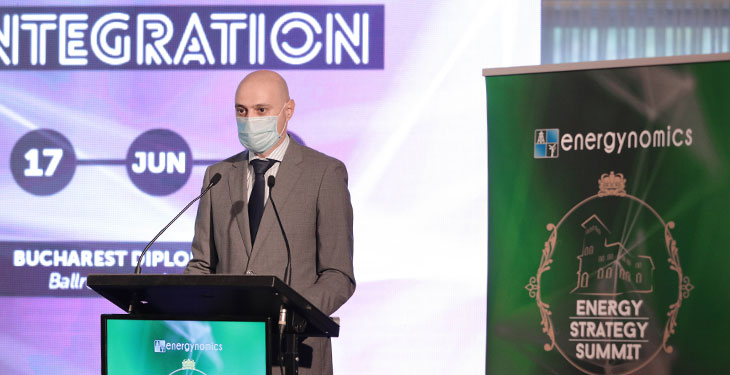The integrated national plan for energy and climate change (PNIESC) will be updated during the 2022-2023 period, in the context of new targets and ongoing discussions at the European Commission, said on Thursday at the 7th edition of the Energy Strategy Summit, the Secretary of State in the Ministry of Energy, Dan Drăgan.
“The decarbonisation plan proposed by the Oltenia Energy Complex, one of the main producers of coal-based electricity, will ensure a sustainable transition to a low-carbon electricity production. This plan is included in the Romanian Energy Strategy and within the National Integrated Energy and Climate Change Plan, where we set a target of a share of renewable energy in total consumption of 30.7%. The National Integrated Energy and Climate Change Plan will be updated in 2022 – 2023 and, in the context of new targets and ongoing discussions at European Commission level, our target will certainly be higher. The sources of funding that will be available in the energy sector this decade are impressive amounts coming from the Just Transition Fund, from The National Recovery and Resilience Plan and the Modernization Fund. There will be enough money. As someone said two weeks ago at another debate that it will rain with money, that’s right. What we want is for the market actors, those who actually work, develop and bring added value, to have the most mature projects that can be financed through these instruments,” said Drăgan, according to Agerpres.
The official of the Ministry of Energy added that, during June, Romania will connect on the spot market with three other states – Germany, Austria and Poland.
“At the moment, there is a clear need for specific policies and investments in these areas and sectors to combat the loss of jobs associated with energy and environmental policies. To this end, the Just transition mechanism will contribute to economic diversification and retraining and inclusion. We are in the process of ensuring the transition from coal to natural gas and renewable energy, and we want to achieve the 2030 climate targets and the climate neutrality that the European Union wants to achieve by 2050 (…) We are interconnected with the neighboring countries, we have a spot market, an interconnected intra-day market. We are waiting during this month the interconnection with Germany, Austria and Poland on the spot market and we consider that what is happening at the moment will lead to an energy price at European level. In order to have an economy that can cope with these things, there will have to available financing mechanisms, including for energy efficiency, within the industry,” the Secretary of State added.
In Dan Drăgan’s view, the dependence of the industrial sector on energy consumption now needs a sustainable transformation for a significant reduction in greenhouse gas emissions.
